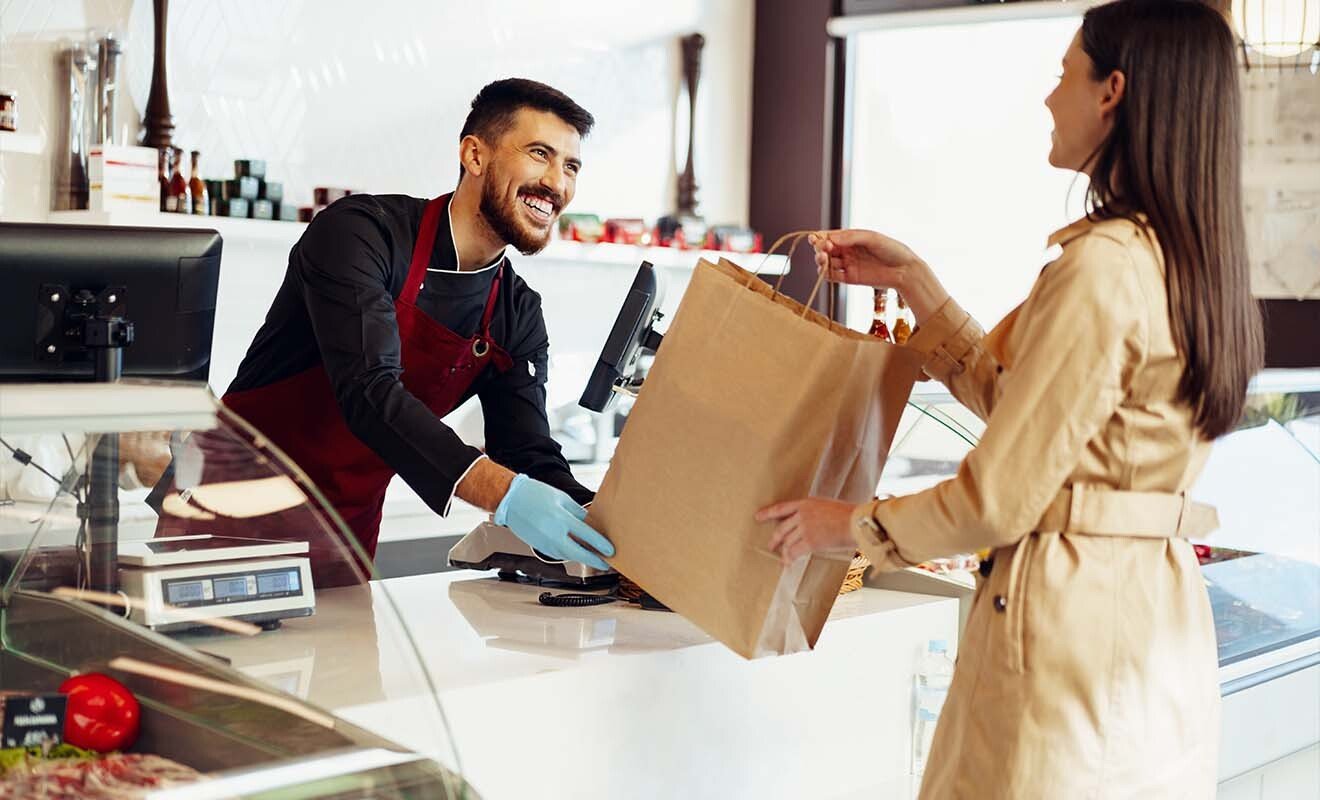Ship-from-store : challenges and lessons for the commerce of tomorrow?

The explosion in online sales, accelerated by the current health context, places delivery at the heart of the challenges of future commerce.
The standards imposed by the major e-commerce players, combined with the growing demands of customers, are shaking up traditional distribution. Brands must rethink and adapt their logistics while remaining competitive.
Ship-from-store is one possible response to this challenge. But what are the advantages and disadvantages of this delivery method? Is it a temporary response or a sustainable solution for distribution? How can we set it up quickly?
Our experts here at Woop & Bartle, supported by a panel of Leroy Merlin and Id Kids and Easy2Go distributors, have dissected this ship-from-store trend for you and shared their comprehensive feedback on the subject with us.
Introduction to Ship from Store
Ship-from-store (SFS) is a delivery method that takes place from a physical point of a distributor’s sales network and not from its warehouse. Today, it’s considered as a boost for business and an opportunity for all e-commerce players.
The role of stores is changing as they become SAAS (store as a showroom)
Some key figures :
- Over ⅓ of US retailers already offer ship-from-store solutions
"Forester Study" - In France, 15% of distributors manage their stocks in a fully omnichannel fashion
"5th Capgemini omnichannel barometer carried out for LSA" - 20% of French stores use their stocks for ship-from-store
"5th Capgemini omnichannel barometer carried out for LSA"
Context
Ship-from-store now plays an essential role in meeting the changing needs of consumers (digitalisation, consumption requirements) and retailers (continuation of the shopping experience, to expand the range and availability of products, unify stocks
Two current accelerators for Ship-from-store
- the current health situation
- reducing our carbon impact
Woop's 4 main observations of ship-from-store and last-mile delivery
- explosion of e-commerce and omnichannel routes
- increasing complexity of the forms of last-mile delivery
- the last mile is expensive (up to 30% of transport costs)
- difficult for brands to understand these new forms of delivery
Overview of Ship-from-store for our stakeholders
"A national strategy, 100% of stores operate with SFS in France"
- Virginie SOULIERE / Leroy Merlin
"An international strategy, 15 stores deployed internationally, including Switzerland and Slovenia"
- Mathilde Watine / ID KIDS
"A recent phenomenon with very specific features, small-volume packaging, the explosion of flows during lockdown, the environmental issue, higher customer satisfaction"
- Olivier LEROUX / Easy2 Go
"The factors driving SFS have been constantly evolving and in particular have made stock visible on a national level where this was previously only local and provided a response to the closure of warehouses during the period of lockdown or to the over-activity of warehouses at certain times."
- Alexis Quesney / Woop
The main benefits of SFS
"Resilience of the logistics network thanks to a more equitable distribution of loads between warehouses and stores"
- Virginie SOULIERE / Leroy Merlin
- offering a short lead time (D+1) to our customers on a wide choice of items
- more responsible delivery (reduced mileage, better carbon impact)
"An improvement in stock quality and an increase in turnover of 5 to 10%"
- Mathilde Watine / ID KIDS
- a more economical, simplified logistics solution compared to other, more traditional solutions
- an extended stock offer on the e-commerce site for consumers (highlighting products available in stores and warehouses)
- production of products correlated with in-store sales
"A scalable model that can be quickly deployed across the whole region"
- Olivier LEROUX / Easy2 Go
"Increased agility and savings of 10 to 20% thanks to competition between carriers"
- Alexis Quesney / Woop
- better operational efficiency for in-store teams thanks to the integration of our solutions into retailers' IT systems
- permanent access and control over data to manage stores and carriers
- having access to a wide choice of low-carbon carriers (bicycle courier)
Ship-from-store: an essential vector for reducing carbon impact
- reducing the unit distance for each mile travelled
- enabling more deliveries and fewer miles for carriers
- use of clean energy vehicles increasingly used in SFS
- optimised journeys offered to carriers of groups
SFS: a good way to reconcile physical and digital
"The teams are calling for SFS as a complementary activity between the two worlds with the option of offering the remainder of collections in stores"
- Mathilde Watine / ID KIDS
FEEDBACK FROM OUR EXPERTS ON SHIP-FROM-STORE
Upstream
- Defining the meaning and objectives of SFS in advance
- Collaborating with all the company's business lines (customer service, marketing, logistics, IT)
- Identifying and promoting the project internally using ambassadors
- Establishing an internal and external diagnosis (in-store organisation, stock reliability, finding the right technological and transport partners)
- Having a dedicated project team on the subject
- Explaining clearly the SFS strategy implemented to stores
- Offering SFS to stores that wish to test it before the global launch
Upon implementation
- Communicating the successes of SFS and areas for improvement to stores in a transparent way
- Creating a real win-win for the brand and teams in the field (challenges on turnover achieved in SFS stores)
- setting up specific areas in store to accommodate delivery people
- maintaining consistency between the in-store sales experience and the person who will deliver the merchandise: “the delivery person is the final seller”
CONCLUSION: SFS - A SUSTAINABLE, LONG-LASTING SOLUTION
- To respond to what consumers are demanding both with regard to the delivery promise and environmental issues (SFS obtains a higher NPS compared to standard deliveries)
- To optimise stocks and serve customers locally
- To revitalize the store network and deal with the lower in-store footfall
- A business contribution and additional development for stores
Thank you to our experts
Virginie Soulière from Leroy Merlin
Mathilde Watine from IDKIDS
Olivier Leroux from Easy2Go
Denis Vanbeselaere from Bartle
et Alexis Quesney from Woop
Subscribe to our newsletter
Auteur
Team Woop
Read his profileArticles liés
2022/03/15 6min read
Webinar Summary #5: Decathlon The secrets of a successful omnichannel strategy
2022/02/04 6min read








